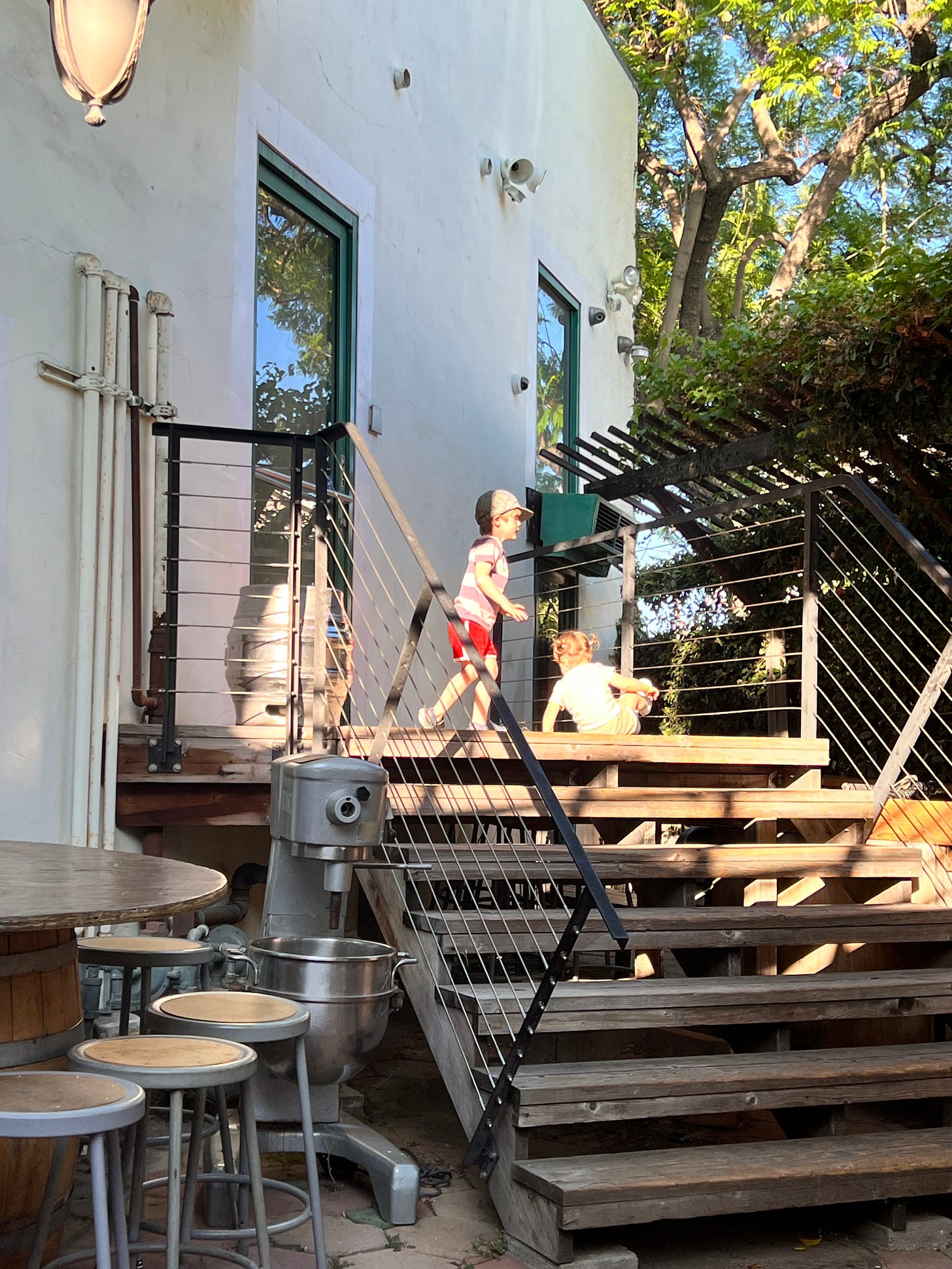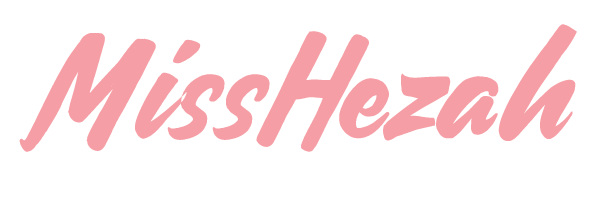Going Public
With children in tow.
Last week, a friend posted an Instagram story to close friends saying something to the effect of, “Million dollar idea: coffee shops without kids.” Even as a mother, I am way into this idea. I would love to go to a kid-free coffee shop, drink my expensive latte, and work or study in peace. Sign me up!
On the other hand, this proposition reminded me of how much I hate going to non-kid-specific places with my two small children, who have no control over their bodies or voices. I’ve always assumed it was my own shit that made to feel like my kids are superficially tolerated interlopers, but I’m starting to think it’s not just own insecurities to blame. Other people are bothered by them too.
What’s the problem here? Child-free people aren’t comfortable and neither are parents. Somehow, this feels like part of the uniquely American problem of decimating any semblance of connectedness and community in favor of ruthless individualism, or nuclear familyism. Every man, woman, and even child for themself. Everyone gets to feel uncomfortable just existing together!
In the four short years since becoming a parent, I haven’t been good about taking my kids into the world in any adventurous way. Granted, I wasn’t allowed to for about half of that time, and I never really got in those reps or the habit. The pandemic and parenthood made me press pause on so many parts of myself, and I haven’t had much of a chance to restart again in a sustained way. Sure, I’ve had the occasional night out, doing things I used to on the regular like hitting up concerts, having dinner with friends, and seeing a play. Truthfully, I don’t even know what I would do or who I would be, fully, even if I had the time and space. That’s OK! It’s where I’m at right now.
But, this may explain why I haven’t made a huge effort to integrate my children into my pre-parent self. Who is she? I don’t even know what that would look like since so much of my life revolves around the home these days. So, when I am with them, I am in mom mode. We go to kid-friendly places and mostly meet other families. When I am not with my kids, I try to reconnect with my old self and savor the activities alone, or with other adults. I don’t want to share them just yet. I’d rather do the things I love less frequently, and enjoy them more fully. Newsflash, parents don’t WANT to be with their children 24/7, they kind of HAVE to be because we don’t have strong communities or affordable childcare options.
I’m not one of those parents who let kids stop them from living their lives, but I’m also not delusional that I can move through life in the same way, but with a couple of cute new accessories. As such, evolution into this new phase has halved my life into parent and non-parent. It’s working so far. It’s kept me happy and unannoyed, and apparently those without children as well.
I’m not going to lie. Bringing small kids into mainstream places stresses me out more than it seems to for other parents. Much of the expected decorum in the public domain requires somewhat developed executive functioning skills that my children don’t yet possess. With no reason to get on a plane to see family, I haven’t dared try to fly with my kids for fear of the looks, stares, and judgments of their every move and sound.
I’d rather just wait until I have childcare to get a happy hour, see a movie, take a trip, or honestly, go out to dinner. Though this isn’t, admittedly, the best mindset, I’d rather wait until I don’t feel like I’m bothering anyone, including myself.
The problem isn’t kids. It’s not parents. And it’s certainly not adults without kids in tow. It’s bigger than any of us. It’s how our society views its children and the parents who raise them. In America, children are a burden and a choice. Parents are on their own to lay in the big, messy family bed they made for themselves. It’s no wonder that birth rates are dropping. How utterly unappealing to have zero social or governmental support to be pregnant, give birth, and care for your child––while trying to still work?
It’s not like this in other places.
I had already started writing this piece when Dr. Jessica Wilen’s latest edition of A Cup of Ambition hit my inbox yesterday morning. She interviewed, Dr. Caitlyn Collins, author of "Making Motherhood Work: How Women Manage Careers and Caregiving". I loved the interview, but these two points stood out to me:
Dr. Collins explained,
Sweden is a country that we refer to as a “dual breadwinner, dual caregiver society”. The cultural norm expects that most adults have children and that both men and women are equally involved in raising those children. Importantly, Sweden is also a country that thinks of children as a public good. They acknowledge that when we invest in children being raised well, it benefits all of us.
This is not at all how we talk about children in the United States. We talk about kids as a private and personal responsibility, almost the same as a pet. We tell people, “don't get one if you can't take care of it all by yourself”. But kids and pets aren't the same. Pets don't grow up to be our doctors and our teachers and our trash collectors and our next door neighbors.
She went on to describe a recent parenting book (I’ve been meaning to read),
I just finished listening to the audio book of Hunt, Gather, Parent by Michaeleen Doucleff, who has a PhD in the natural sciences and is also a NPR science reporter. She took an anthropological approach to parenting and went and spent time with three indigenous communities around the world to see how unusual contemporary American and European parenting standards and practices are, compared to how folks have been parenting for tens of thousands of years.
It was really helpful for me to zoom out from my own worldview and think about children as integral, welcomed, and cherished members of a community, rather than these little beings who should be quiet and not bothersome. This book really reminded me that actually kids are incredibly capable, they're incredibly resilient, they're such a source of joy.
We don’t treat children like members of society who are entitled to take up space, no matter how much air they need to suck up at any given point in their development. We do not appreciate them as the future. And, when we fail to take collective responsibility for their growth, we all miss out on sharing in the joy. I don’t just want other people to be tolerant or comfortable with my children’s presence; I want them to respect them as individuals who have a right to exist. As Dr. Collins pointed out, one of them could someday be your surgeon.
There is a shift happening. People are starting to realize that bootstrapping your life with a filtered Instagram facade is a one-way ticket to complete and utter burnout. In fact, one of my OG favorite writers, Anne Helen Petersen of Culture Study just announced the title new book, “Friend Group: A Survival Guide to The Loneliest Century,” which will explore how we can and should build community by cultivating reciprocal relationships that provide the village we all naively left.
Quite obviously, this whole way of being is not working. Child-free adults feel annoyed, and parents feel self-conscious. What starts as a rift wedges its way into a valley. It leads us to question if friendships between “breeders” and “non-breeders” are even possible. (They are.)
It’s not a matter of us versus of them. And even though I very much think that some places should just be for kids, and others just for adults (yes even some coffee shops), there’s room for more spaces to become more warm, communal, and supportive places where everyone gets to share the fleeting magic of childhood.




